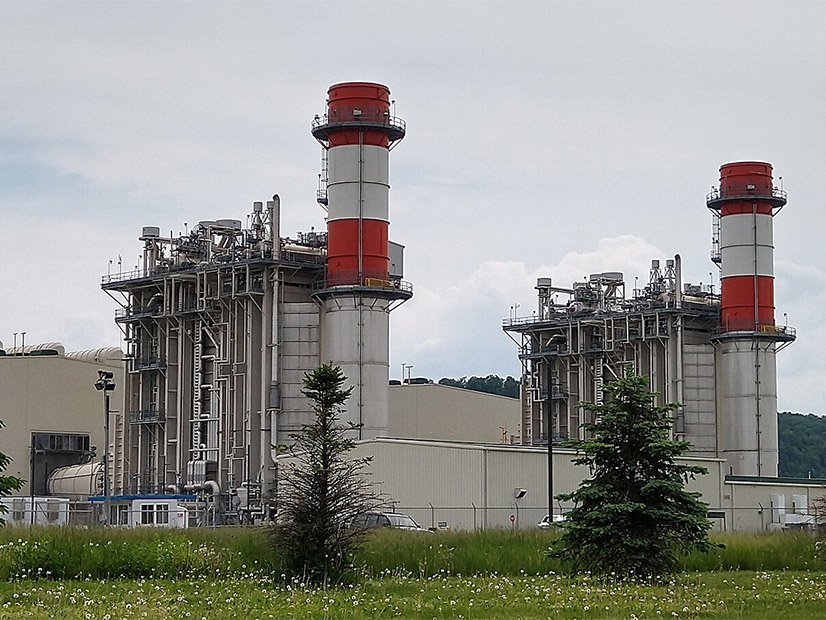
PPL is backing legislation this year that would let utilities in Pennsylvania own generation, which would unwind a key part of the state’s nearly 30-year experience with restructuring.
The utility holding company, which is based in Pennsylvania and owns utilities there, announced its support for utility-owned generation on an earnings call last summer after capacity prices in PJM spiked. (See PPL Backs Utility-owned Generation in Pa. After PJM Capacity Price Spike.)
“In Pennsylvania, specifically, we continue to advocate for a state-focused, no-regrets strategy that addresses impending energy shortfalls and provides the state with additional tools to help protect customers from price volatility and reliability concerns,” PPL CEO Vincent Sorgi said during the company’s year-end earnings call with analysts Feb. 13. “We believe one way to do this is to allow regulated electric utilities to invest in generation resources up to and including owning and operating generation again. This would complement the competitive market by addressing resource adequacy gaps, rather than relying solely on market forces to deliver a solution.”
Sorgi’s remarks came after The Standard-Journal published an op-ed by Christine Martin, president of PPL Electric Utilities, outlining the case for letting utilities back into the generation business without setting up a separate firm that operates generation using only market revenues.
That generated pushback from three former chairs of the Pennsylvania Public Utility Commission — James Cawley (D), Robert Powelson (R) and Glen Thomas (R) — in an op-ed published in The Scranton Times-Tribune, arguing utility-owned generation would gouge consumers. All three have long supported competitive markets, and Thomas is the president of PJM Power Providers, which represents independent power producers who would have to compete with rate-based generation if the change went through.
“PPL’s policy shift ignores the fortunate position that Pennsylvania now enjoys thanks to competitive markets,” the three wrote. “Pennsylvania currently has 70% more power than it needs to meet peak demand. This enviable surplus means Pennsylvania nearly always exports power to neighboring states with generation deficits, no matter how much demand fluctuates.”
But Pennsylvania is in PJM, and Cawley noted in an interview that other states in the RTO are falling short on building new generation. That has helped lead to higher prices in the entire market. Pennsylvania has better policies to encourage new generation than neighboring states like New Jersey and Maryland, he added.
“As we say in our op-ed, independent producers will take the risk, and they will meet that demand,” Cawley said.
Martin argued just the opposite in her piece.
“We cannot simply wait for the market to ‘fix’ the issue, especially when that same market is failing to bring new generation capacity online in a timely manner,” Martin wrote. “PJM is working on market reforms, and while these are steps in the right direction, they are unlikely to address the immediate crisis facing Pennsylvania and our region.”
On the earnings call, Sorgi said that the firm expected a bill to be introduced in the legislature this spring or summer that would allow for utilities to own generation. Other options include incentives for utilities to enter into power purchase agreements that go beyond the state’s default service auctions, or a “Baseload Energy Fund” that would be modeled on a program in Texas that paid for natural gas plants outside ERCOT’s market. (See PUC Shortlists 17 Projects for Loans from Texas Energy Fund.)
PPL is not the only utility that does business in Pennsylvania to endorse the idea of utility-owned generation. Exelon CEO Calvin Butler made comments during his own firm’s earnings call the same week endorsing the policy shift, saying the rapid load growth forecasted for the PJM region shows that “complementary” approaches to the market are needed to ensure adequate supply.
“It is clear that states are and should be proactively involved in supply solutions that complement the markets,” Butler said, “not to mention pursuing policies that enable more demand-side solutions. There is no single answer to meeting the levels of load growth that are anticipated. But instead, a variety of solutions across regulated and merchant participants is necessary.”
Cawley served on the PUC for two stints, in 1979-1985 and again in 2005-2015, so he has seen Pennsylvania as a regulated state and a competitive one. He said the change was for the best.
“When I first got into regulation, right after the Three Mile Island accident, there were all these nuclear power plants that were nearing completion, and then we had to decide how much of the cost would be allowed in the rate base,” Cawley said. “It’s an impossible test. Some construction project that’s been going on for 15 years with enormous cost overruns; that’s a game the utilities will win every time.” Utilities are masters at the accounting game; they know how to recover every cost, he added. But deregulation eliminated that. Competition ensures that customers do not bear the risk for massive cost overruns in generation construction, which was commonplace after Three Mile Island, he said.
Both PPL and Exelon used to be in the generation business, but both spun off their competitive firms, with Talen Energy and Constellation Energy as the results, respectively. Now the utilities are using scare tactics to get back into the generation business, but without the risks facing competitive generators, Cawley argued.
“It’s an effort to confuse people, to get legislators afraid that reliability is somehow going to suffer because there won’t be enough added generation,” Cawley said. “Well, that’s certainly nonsense. In Pennsylvania, we have been a net exporter of power for decades, and it’s going to stay that way, at least for another 10 years, even if nothing was built.”



